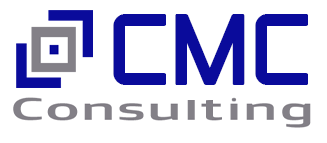Business Management: Key to Success

It encompasses a broad range of activities, including strategic planning, resource allocation, leadership, and decision-making. At its core, it involves setting goals, implementing strategies, and managing operations to ensure organizational success.
Business Management is essential to guide companies in the dynamic and complex world of business. It requires a combination of analytical, strategic, and interpersonal skills to face challenges and capitalize on opportunities. It is the main backbone of every successful company, playing a vital role in growth, profitability, and sustainability.
Why is Business Management Key to Success?
Business Management provides structure and direction to an organization, and ensures that all efforts are aligned with the company’s objectives and that resources are utilized efficiently. Good management practices stimulate innovation, identify and mitigate risks, and maintain a competitive edge in the market.
Effective Business Management also plays a key role in decision-making processes, problem-solving, and adapting to in market conditions. It generates positive results in strategic planning, employee performance, and customer satisfaction, leading to growth and profitability.
Key Elements of Business Management
Business Management encompasses several elements, each playing a crucial role in the success and sustainability of an organization. The dynamic nature of business demands a comprehensive approach to management, where these elements work in harmony to create a resilient and adaptive business model.
Strategic Planning
Strategic Planning involves setting goals and outlining strategies to achieve them. It’s about understanding where the business is headed and the actions needed to get there. This process ensures that resources are allocated appropriately by aligning daily operations with long-term objectives.
Effective Strategic Planning guides a company’s trajectory, providing benchmarks for measuring success and ensuring that the organization remains focused and on track to achieve its objectives.
Leadership and People Management
Leadership is about guiding and inspiring a team to achieve business objectives. Motivating employees, fostering a positive work culture, and managing team dynamics. Good leadership is characterized by strong communication , decision-making, and interpersonal relationships skills.
People Management invests in the development and well-being of employees, ensuring that they have the tools and training they need to succeed in their roles.
Financial Management
Financial Management is essential for sustainable business growth. It involves budgeting, forecasting, and resource allocation, ensuring that the company has suficient funds to operate and invest in growth opportunities.
Good Financial Management includes analyzing financial data to make decisions-making, maximize profits, and maintain financial health.
Marketing and Sales
Marketing and Sales are fundamental in creating value and generating revenue. Marketing focuses on understanding customer needs and communicating the value of products or services. Sales involves direct interaction with customers to facilitate transactions.
Both require a deep understanding of market trends and customer preferences, which is essential for building brand awareness and driving growth.
Operations Management
Operations Management ensures that business processes are efficient and effective. It involves managing the production process and optimizing the use of resource to create goods or services.
This element is critical to operational efficiency, assured quality, cost reduction, and increased profitability.
Technology Management
Technology Management deals with the effective integration of technology into business operations. It includes staying up to date with technological advances and managing digital transformations.
Effective technology management increases operational efficiency, promotes innovation, and provides a competitive advantage in the marketplace.
Risk Management and Compliance
Risk Management involves identifying and mitigating business risks, while Compliance ensures the fulfillment of laws and regulations requirements. These aspects are crucial to the longevity and legal integrity of the company.
Effective Risk Management and Compliance protect against financial losses, legal penalties, and reputational damage, ensuring business resilience in complex environments.
Business Management Challenges
Effective Resource Allocation
To overcome this, companies need to develop resource management strategies that involve comprehensive planning, budgeting, and forecasting; use of resource management tools; and data-driven decision-making, leading to optimized operations and improved financial health.
Adapting to Market Changes
Companies must be agile enough to respond to evolving customer needs, technological advances, and competitive landscapes . Failure to adapt can result in a loss of market share and decreased relevance.
Continuous market analysis and monitoring of trends are essential. Fostering a culture of innovation within the organization can promote adaptability. Training and development programs for employees can equip them with the skills necessary to support and drive change, ensuring the business remains competitive and forward-thinking.
Balancing Short-Term and Long-Term Goals
It is necessary to balance short-term operational needs with long-term strategic goals. Focusing too much on immediate results can compromise future growth, while focusing solely on long-term goals can lead to current performance issues.
Companies should adopt a dual-focus approach: setting clear short-term goals that align with the broader long-term vision. Regularly reviewing and adjusting strategies and operations to ensure they are aligned with both immediate and future objectives, while maintaining this balance will drive sustainable growth and success.
Promoting a Positive Corporate Culture
Creating and maintaining a positive Corporate Culture is a significant challenge in business management. A toxic culture can lead to employee dissatisfaction, high turnover rates, and consequently, a decline in productivity and profitability. The challenge is to build a culture that aligns with the company’s values and objectives , while supporting employee well-being and commitment.
To achieve this , it is importante to priorite communication and transparency within the organization. Regular feedback mechanisms, employee recognition programs, professional development opportunities, and work-life balance will foster. a positive corporate culture.
Financial Management and Budgeting
Financial Management and budgeting are crucial but challenging aspects of business management. Poor financial management can lead to cash flow problems, inability to fund operations or growth, and jeopardize business survival. The main challenge lies in forecasting market trends, managing expenses, and generating sufficient revenues.
Effective Financial Management requires a detailed understanding of the company’s financial health. Regular financial reporting, budget reviews, and cash flow analysis are essential. Using financial management software will provide valuable insights into financial trends and help in informed decision-making.
Conclusions for Future-Oriented Business Management
Effective Business Management requires a detailed understanding of its fundamental elements and the agility to face inherent challenges. The precision of strategic planning, the variations and subtleties of financial management, and the vitality of a positive corporate culture, are some of the areas that contribute to optimizing operations and promoting growth.
In the fast-paced world of business , remaining adaptable and committed to continuous learning are great assets. Approaching each challenge as an opportunity for innovation and growth, maintaining focus on the long-term vision, and adapting quickly to immediate demands are key elements in this process.
With a foundation built on solid management principles and a keen eye on future trends, you will be ready to lead your business with confidence and creativity, driving it to lasting success.
How We Can Boost Your Business Results
We develop an integrated work of involving all elements that make up Business Management, and your needs are addressed by a differentiated and specific approach for to your Business. One of our team’s strength is the ability to combine knowledge and successful experience in Brazil and abroad with the real conditions of each enterprise
Source: Persona Talent
Do you want your company to be agile, with excellent management and a structured and effective business model?
Looking for something?
Sign up and receive exclusive content.
Categories
Entry and Business Expansion in Brazil
Business Management
Process Management
Interim Management
Follow us on social media
Recent articles
Process Management – Importance and Benefits
Process Management is a set of practices that aim to continuously improve company’s business processes. To this end Managers strive to identify, develop, document, monitor, and control the company’s processes. Importance of Process Management In today’s...
Interim Management: Effective Solutions for Business Success
The business world is changing at a very fast pace, and companies are looking for new ways to advance their operations to continue to be successful . In this process, companies are looking for options to access untapped talent sources, experienced and...
Why Invest in Brazil? – A Country of Opportunities
Amid the political and economic turbulence occurring around the world, Brazil stands out as a reliable destination with opportunities for new businesses and foreign investments. The country is resuming the path of sustainable development, showing...
© 2024 CMC Consulting. All rights reserved.
Matérias Relacionadas
Process Management – Importance and Benefits
Process Management is a set of practices that aim to continuously improve company’s business processes. To this end Managers strive to identify, develop, document, monitor, and control the company’s processes. Importance of Process Management In today’s...
Interim Management: Effective Solutions for Business Success
The business world is changing at a very fast pace, and companies are looking for new ways to advance their operations to continue to be successful . In this process, companies are looking for options to access untapped talent sources, experienced and...
Why Invest in Brazil? – A Country of Opportunities
Amid the political and economic turbulence occurring around the world, Brazil stands out as a reliable destination with opportunities for new businesses and foreign investments. The country is resuming the path of sustainable development, showing...




